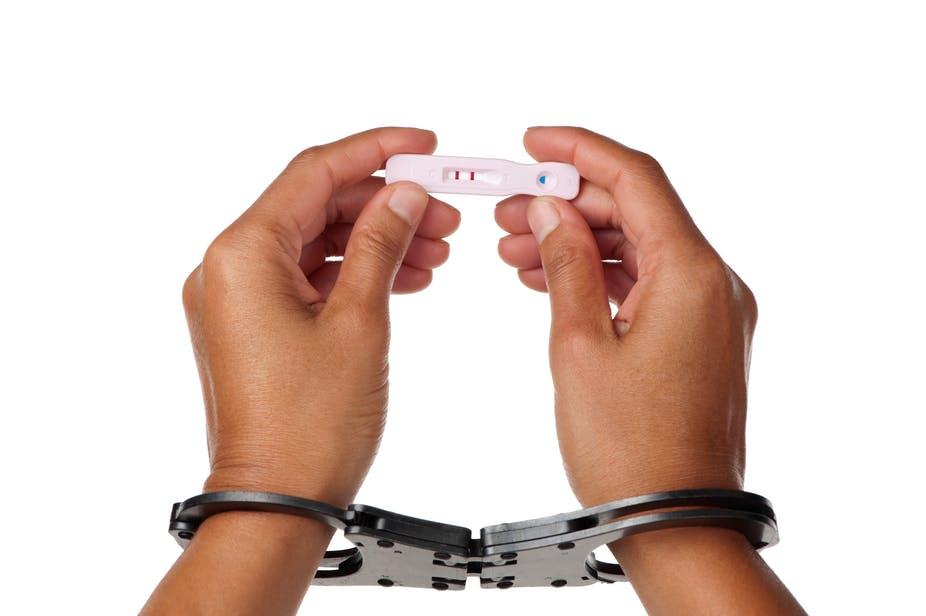Incarcerated women have long been overlooked by broader scope statistics regarding local jails, state prisons, and federal prison. Over 60% of women jailed are awaiting trial and haven’t yet been convicted of a crime, typically because they are less likely to be able to afford bail. Those who belong to this group live below the poverty threshold with an annual income of $11,071, according to the Prison Policy Initiative. A majority of women both jailed and in the prison system are mothers and are often the primary caregivers for their children — the group that’s largely forgotten, though, are the expectant mothers.
In a self-titled “first-of-its-kind” study conducted by researchers at John Hopkins Medicine, around 1,400 women were pregnant upon admittance to state and federal prisons alone from 2016-2017. The twenty-two prisons surveyed hold nearly 60% of the prison population of women, many of whom serve time for non-violent offenses related to drugs or property, as reported by the American College of Obstetricians and Gynecologists. The highest rate of pregnancy is seen in local jails (where there are potentially thousands of pregnant women admitted across the US), where women have come forward saying that they were forced to birth their babies in their cells with no assistance from medical staff.
Last year, a 26-year-old Diana Sanchez delivered her son in the cot of a Denver County Jail cell supplied with only an absorbent pad after alerting a guard that she was in labor and pleading for help. Only after she gives birth did a nurse enter her cell and an ambulance was called. In an interview with a CNN affiliate, Sanchez says, “that the pain was just — it’s indescribable, and what hurts me more, though, is the fact that nobody cared.”
Very few policies exist surrounding care for pregnant women in jails or prisons. They can be shackled (now only under specific circumstances), put in solitary confinement, and face nutritional deficits that could threaten healthy development of an infant. In an interview with The Guardian, a woman in her early twenties was pregnant in a Washington state county jail where, for four months, she was forced to “[subsist] on milk, fruit and cold cereal, as well was commissary purchases of donuts, candy, trail mix, meat and cheese sticks, and flavoured popcorn,” often times wherein the milk was expired.
While the argument could be made that depriving women this way is medical neglect, some women receive better care and structure within the system than on the outside. Dr. Carolyn Sufrin, an advocate for better health care (with a focus on pregnant women) in jail and prison systems, explains that many women “lacked health insurance pre-incarceration…., stable housing, employment, and access to drug or mental health treatment” in an interview with Rewire News.
As a part of the First Step Act passed in late 2018, the use of shackles are prohibited on pregnant women as long as they are not a risk to themselves or others. As Dr. Sufrin said, “What we do to these women behind bars tells us about society more broadly… [and] how we view reproduction for poor women and women of color who are disproportionately represented in incarcerated populations.”
As reported by the Prison Policy Initiative, the prison system is still mainly structured for men without properly addressing womens’ unique needs, ranging from feminine hygiene to pregnancy to menopause. Women are still at risk for “sexual abuse by correctional staff or other incarcerated women” and most prisons do not have adequate programs to help women manage mental health issues or substance abuse. The population of incarcerated women requires more attention now than ever as it continues to grow at double the rate compared to men’s, and we cannot continue to fail pregnant women in the process.





![[Both photos courtesy of sonoma.edu]
Ming-Ting Mike Lee stepped in as the new SSU president following Sakakis resignation in July 2022](https://sonomastatestar.com/wp-content/uploads/2024/04/CC4520AB-22A7-41B2-9F6F-2A2D5F76A28C-1200x1200.jpeg)


























